





































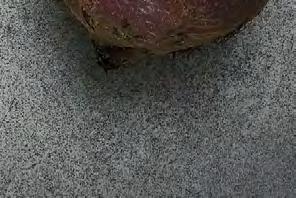









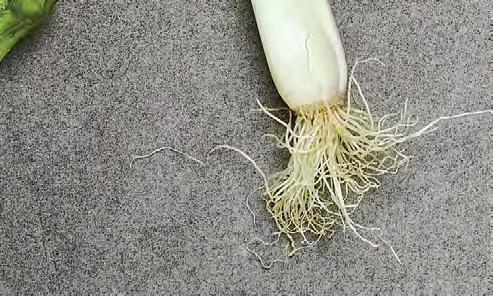

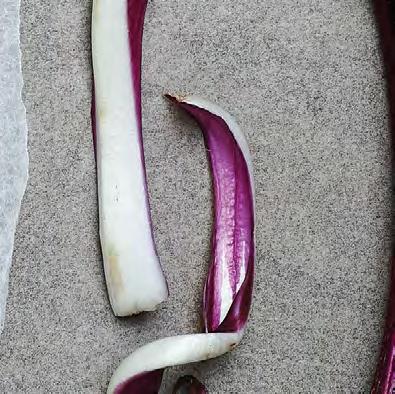




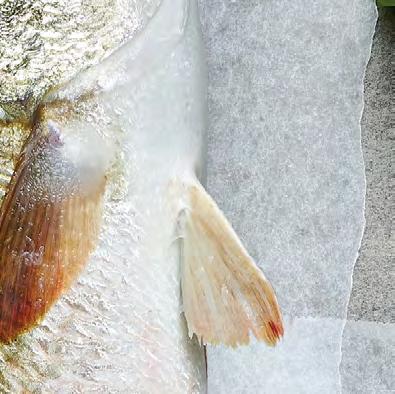



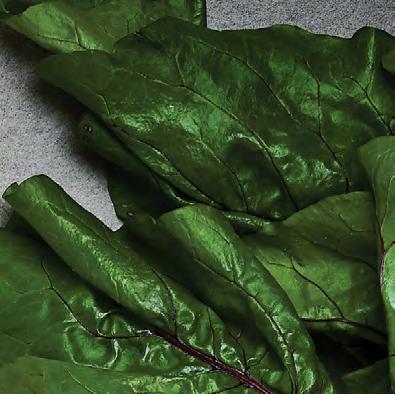






Seafood Expo Global/Seafood Processing Global is back in Barcelona, Spain in 2023 bigger than ever before. Running from 25 to 27 April at Fira de Barcelona’s Gran Via venue, the expo features more than 49,000 net square meters of exhibit space, making it the largest edition of the event in its history, according to organizer Diversified Communications at time of publication.
“We are excited to see the industry’s growing interest in taking part in our global event, and this year’s edition promises to be the largest one ever,” Diversified Communications USA President Liz Plizga said. “The growth of the event is mostly attributed to an increase in number of new participating companies and to exhibiting companies and pavilions returning with larger stand spaces.”
There are plenty of seafood products to explore – and maybe even sink your teeth into – in halls 2,3,4,5, and the Galleria (located between halls 4 and 5) of the Gran Via exhibition center. Find the seafood processing world’s latest cutting-edge technologies and services at Seafood Processing Global in hall 3.
Once you’ve expanded your palate for innovation traversing the bustling exhibit halls, expand your mind with the comprehensive three-day conference program also on offer at the expo. And don’t forget to top off your first full day at the event by attending the prestigious Seafood Excellence Global Awards, recognizing the best seafood products of the year shown at the fair.
This issue of Expo Today Barcelona will give you the latest on metro timetables, Barcelona dining options, and the major industry themes playing out in 2023. When you arrive tomorrow, another issue of Expo Today will be available to you with even more event exclusives!
Swing by the SeafoodSource stand, #GA400, to meet with the official media team covering Seafood Expo Global/Seafood Processing Global. And if you haven’t already, make sure to subscribe to our free daily e-newsletters by visiting SeafoodSource.com so you don’t miss out on any expo scoops.
We at SeafoodSource are wishing you three days of seafood-industry bliss and business-building in beautiful Barcelona!
Warmly,
– Maddie Kearns Editorial Project Manager, SeafoodSourceEXECUTIVE EDITOR
Cliff White cwhite@divcom.com
EDITORIAL PROJECT MANAGER
Madelyn Kearns mkearns@divcom.com
EDITOR
Chris Chase cchase@divcom.com
ASSOCIATE EDITOR Bhavana Scalia-Bruce bscaliabruce@divcom.com
ADVERTISING SPECIALIST
Kathleen Montana kmontana@divcom.com
GRAPHIC DESIGNER Jennifer Finn @seafoodsource seafoodsource @seafood_source
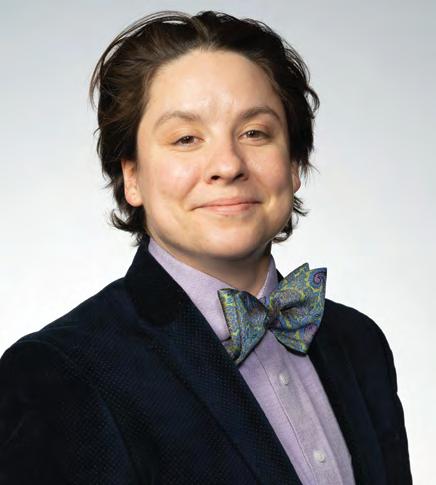
Published by Diversified Communications
Producer of : Seafood Expo North America/ Seafood Processing North America, Seafood Expo Global/ Seafood Processing Global, Seafood Expo Asia, SeafoodSource
Publisher of : National Fisherman, WorkBoat
Theodore Wirth President/CEO
Liz Plizga
President, Diversified Communications USA
Mary Fowler
Sales Manager, SeafoodSource
Heidi Weeks Sales, SeafoodSource
Katherine Shagoury Digital Product Director, SeafoodSource
Kelcey George Marketing Manager, SeafoodSource
Joshua Hodges Marketing Coordinator, SeafoodSource
Diversified Communications 121 Free Street, P.O. Box 7438 Portland, Maine 04112-7438
Ph: (207) 842-5500
Fax: (207) 842-5505 divcom.com
Copyright© 2023
Diversified Communications
PRINTED IN SPAIN
Produced by




Fresh seafood deserves the freshest approach to temperature-controlled logistics. Discover industry-defining innovations, reliable transportation, and a facility network that spans the globe.
lineagelogistics.com/seafood


Coho stands out for its great red color, more intense than other salmon species. Our salmon has tonalities superior to the 28 SalmoFan, which gives it an outstanding appearance.
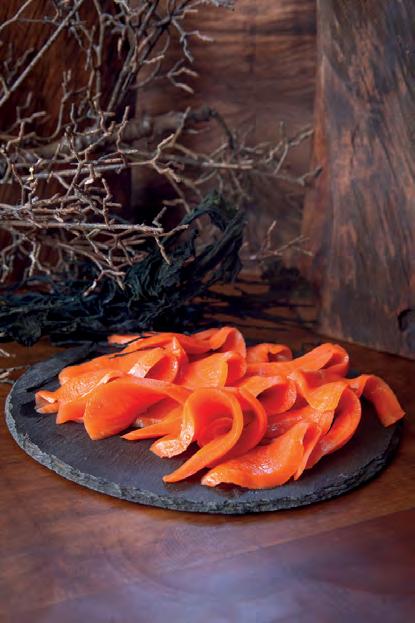
Coho Salmon is high in anti-inflammatory fats, minerals and omega-3 fatty acids.
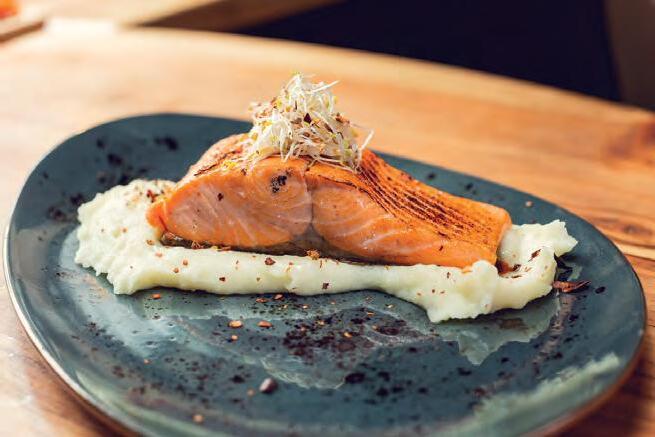
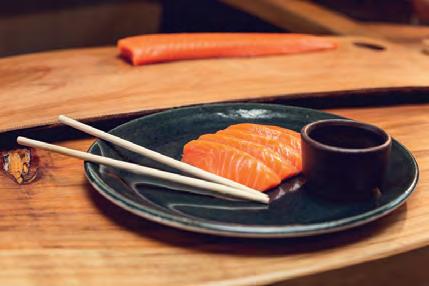

e consumption of omega-3 helps to maintain cardiovascular health and improves eye health and brain functions.
It has a milder flavor than Atlantic and Sockeye Salmon, making it an excellent option for any palates.
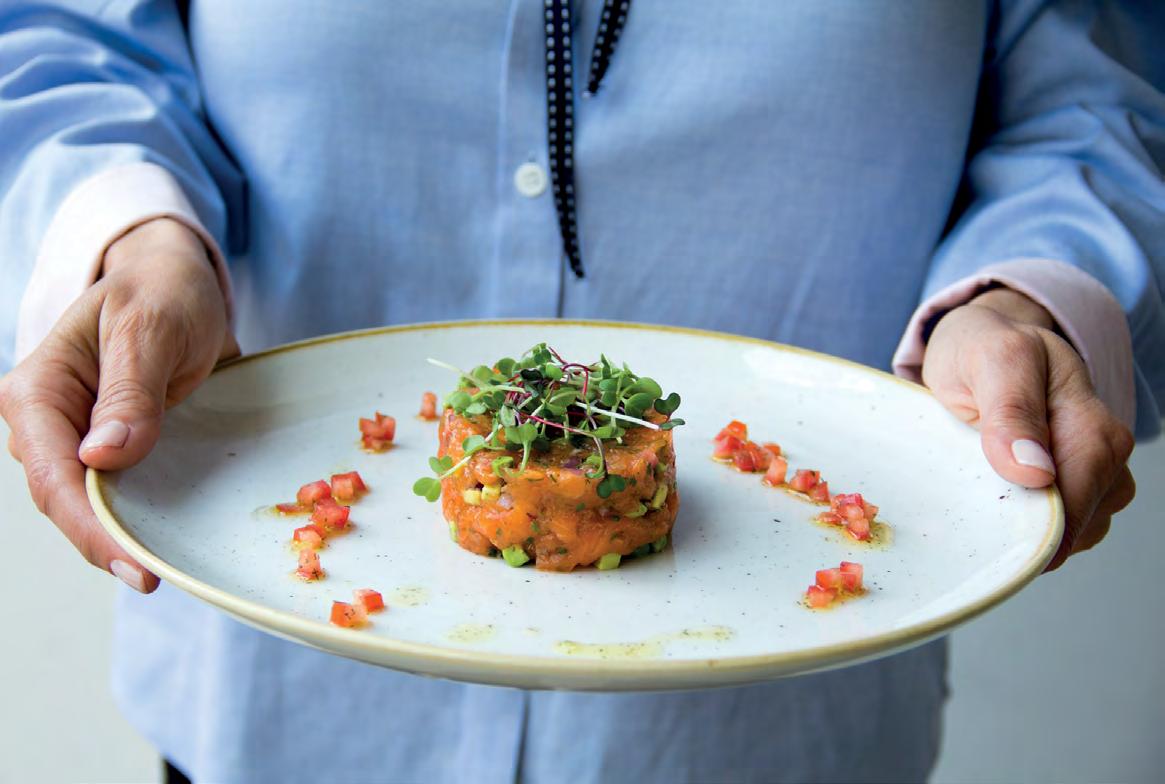
Its exceptional texture makes it ideal for all kinds of occasions and preparations.
TARTAR JAPANESE CUISINE GRILLED
AND MUCH MORE!
Coho salmon stands out for a series of characteristics that makes it unique.
Seafood Excellence Global Awards Reception:
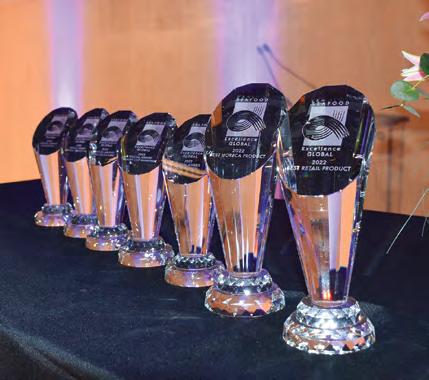
Tuesday 25 April 18:15-20:00
Location: CC5, Room 5.1
The Seafood Excellence Global Awards competition is designed to recognize the best seafood products of the year represented at Seafood Expo Global.

During the reception, the Seafood Excellence Global Awards will be presented to the winners of the best seafood products of the year, with grand prizes given to:
• Best Retail Product
• Best Hotel/Restaurants/Catering (HORECA) Product Special Awards may also be given, at the judges’ discretion, for the best products in the following categories:
• Innovation
• Convenience
• Health and Nutrition
• Retail Packaging
• Seafood Product Line
beer, and hors d’oeuvres will be served.



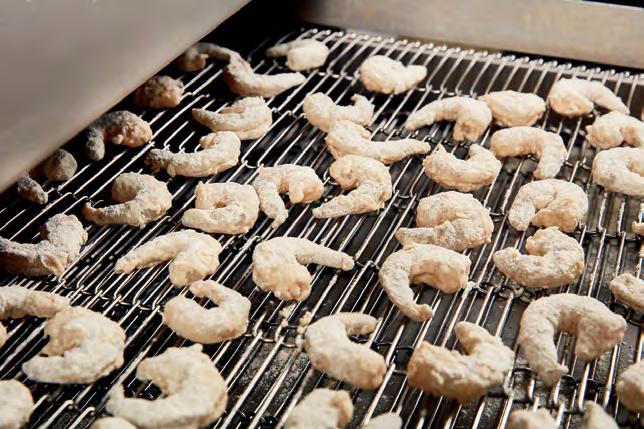
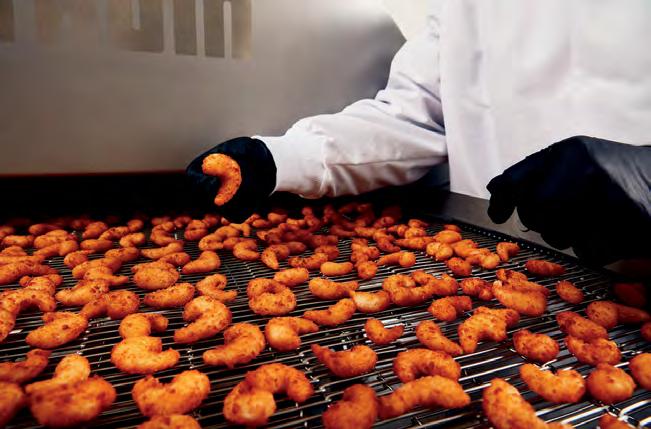
To connect to the wi-fi, select the network: Free_WIFI_Seafood


HEADING INTO THE SECOND QUARTER of 2023, inflation remains a worldwide concern for all industries, seafood included, according to Kroll Institute Global Chief Economist Megan Greene.
“Inflation is top of mind for many, many businesses. I think there’s a real risk that inflation remains elevated and persistent. I think the probability of that is really high and I think that the impact of that would be pretty high,” Greene, who will deliver the keynote address here at Seafood Expo Global/ Seafood Processing Global 2023, said in March.
While inflation has peaked in some places, such as the U.S., Greene said Europe has yet to reach that point.
“Unlike in the U.S., inflation in Europe is primarily driven by supply-side factors. So, in a way, the European Central Bank [ECB] is stuck having to hike rates even though it can’t actually do much about the biggest drivers of inflation, which are an energy-shock, food prices as well,” she said. “Also, unlike in the U.S., peak inflation isn’t behind us in Europe. Headline peak inflation is because energy costs have come off so much. If you look at core inflation, which strips out volatile energy and food costs, you can see that it continues on an upward march.”
In early March, “France, Germany, Spain, and Belgium all reported an acceleration in inflation, which was a bad surprise for the ECB,” Greene added.
“It just goes to show that peak inflation is still ahead of us in the Eurozone,” she said.
Wage growth is adding another complex piece to the global inflation puzzle, said Greene, who noted that wage growth in the European Union in 2022 reached 5 percent – “well above the Eurozone’s historical average of around 2-3 percent.”
“It’s a worry for central bankers to have wage growth so strong because effectively workers can come and say, ‘Look, we have to pay a lot more for everything, so you need to pay us more,’ and companies will say, ‘Fine, we’ll pay more, but we’re not going to let that eat into our profits – we’re going to pass that cost off to the end-user by hiking prices,’” Greene explained. “It ends up being this endless ratchet effect that’s every central banker’s worst nightmare.”
Over the past 15 years, Greene said the world has been stuck in an environment of secular stagnation, which has translated into a “glut of savings globally.” However, a number of factors – including the green transition and defense spending – are whittling away at the excess, she added.
“Huge amounts of capital are being mobilized, particularly in Europe,
but also in the U.S., in order to undergo the green transition, and that will be fundamentally inflationary over the medium-term. In the longterm, I actually think the green transition – if we ever pull it off – will be disinflationary. All of these green technologies will see their revenue streams collapse, that’s the idea. We’ve seen it happen with wind power and solar power already, but that’s not going to happen for a very long time. For the next five years, I think the green transition will be pretty inflationary and we’ll whittle down our global glut of savings,” Greene said. “Defense spending is also being ramped up. That’s the case for Europe, given the Russian invasion of Ukraine.”
An aging population around the world is one phenomenon serving to offset “this huge increase in spending,” Greene noted.
“If we have an aging population, people are going to save more so they can pay for retirement. That will offset some of the savings, but netnet, I think ultimately, structurally, inflation is going to be a bit high going forward than what it has been for the past 15 years, which was persistently low,” she said.
In Asia, the economic situation for China is strained, according to Greene, who pointed out that while the country’s economy is expected to grow by 5.7 to 5.8 percent in 2023, those figures aren’t up to par with prepandemic norms.
“After the global financial crisis, China’s put the pedal to the metal and stimulus measures and pretty much pulled the rest of the world out of the recession. I don’t think we can actually rely on that this time around,” Greene said. “I think that the expansion will be more measured and more targeted this time.” Climate change was highlighted by Greene as a very present global risk.
“For years, I as an economist would say, ‘Yes, climate change is a huge risk coming down the pike.’ I don’t see that anymore – I think is already a risk that we live with. It’s just really hard to forecast when exactly a [climate-related] event will happen and what the implications will be,” she said.
Even though the U.S., Europe, and China are plotting steps towards a green transition, Greene said “it’s going to take a long time and [no one] is going to hit their net-zero goals.”
“But at least we’re more serious about it now than we were a year ago,” she added.
Join Greene on 26 April for her conference presentation, “Keynote: Navigating the Global Polycrisis,” to learn more about how inflation and other challenges are expected to impact global economies in 2023.
“It just goes to show that peak inflation is still ahead of us in the Eurozone.”– Megan
Greene, Kroll Institute
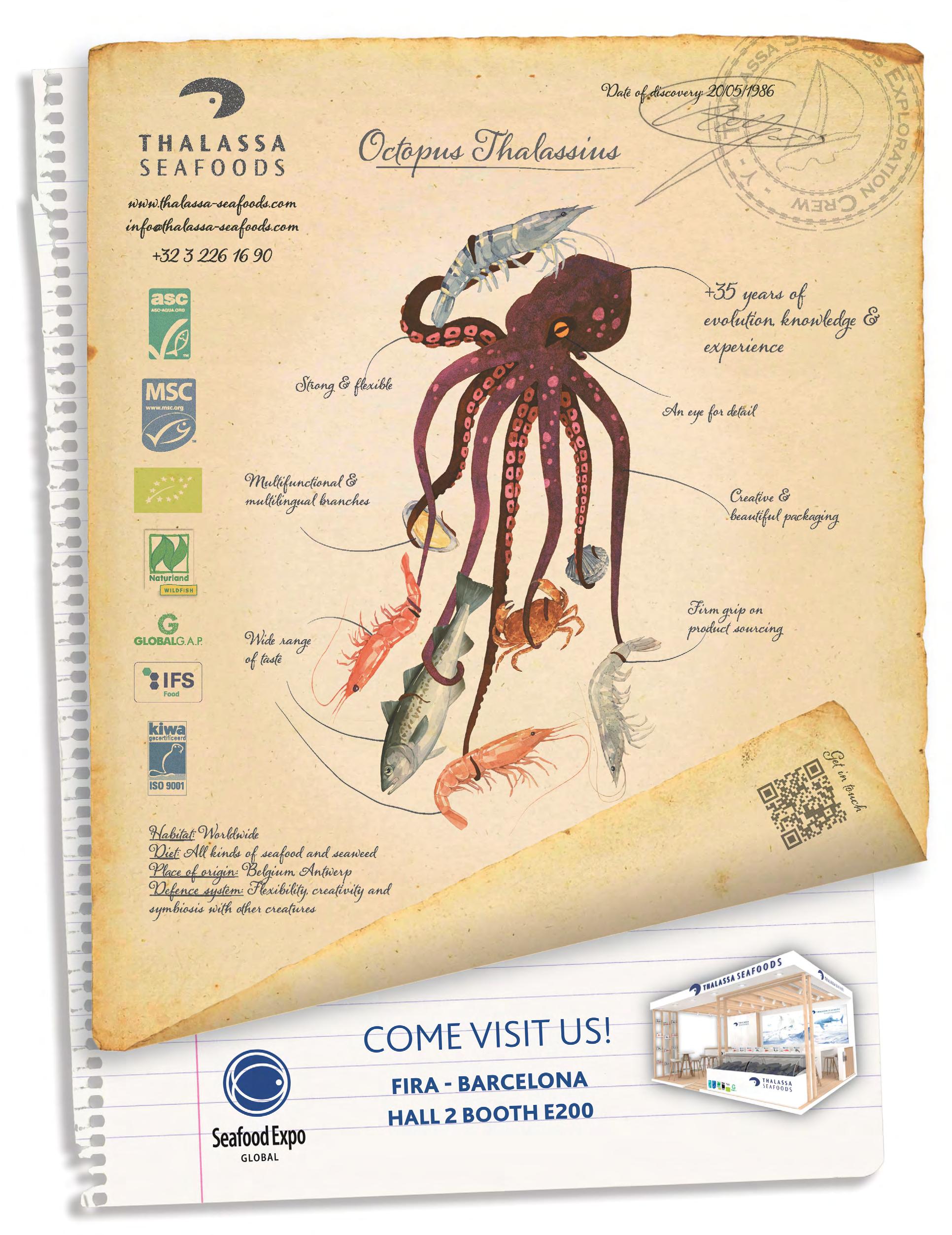
VIETNAM’S SHRIMP INDUSTRY has made significant strides over the past decade, and additional opportunities are on the horizon heading deeper into 2023, according to the Vietnam Association of Seafood Exporters and Producers (VASEP).
Accounting for more than 39 percent of the country’s total seafood exports in 2022, the shrimp sector in Vietnam achieved overall sales of USD 4.3 billion (EUR 4 billion) last year. Amid numerous supply-chain and economic obstacles, the country exported an estimated USD 11 billion (EUR 10.5 billion) worth of seafood in 2022, up 24 percent year-on-year and the largest total in the nation’s history, VASEP revealed in January 2023.

“In the second half of 2022, businesses
faced many difficulties and challenges such as a decline in world market demand due to unprecedented global inflation, the RussiaUkraine conflict, currency fluctuations, high production cost, limited raw materials, and limited capital to rotate production, while facing strong competition from other suppliers. However, shrimp enterprises have always been proactive and flexible, turning challenges into opportunities,” VASEP said.
In 2023, Vietnam’s shrimp sector has ample “potential for stable and sustainable development,” VASEP added, keeping pace with global supply and demand.
The Southeast Asian country’s status as a world leader in shrimp production and supply has been taking root for more than 40 years, VASEP told SeafoodSource, with Vietnam’s Mekong Delta serving as a springboard.
“As a rich alluvial area surrounded by a dense network of canals and rivers interspersed by vast coastal mudflats and with a fairly mild climate, the Mekong Delta has ideally favorable conditions for the strong development of the aquaculture industry. This delta contributes above 80 percent of productivity to Vietnam’s aquaculture. Shrimp farming, processing, and exporting activities bring great economic benefits to the locality as well as Vietnam’s economy in general,” the organization said. “Shrimp farming got its start here more than 40 years ago, which marked the beginning for a shrimp industry that has successfully penetrated major markets around the world, unlocking a great potential endowed by nature.”
Local communities in the Mekong Delta region have long “leveraged the natural advantages of mangrove forests and fields to raise saltwater shrimp by a completely natural method,” VASEP said.
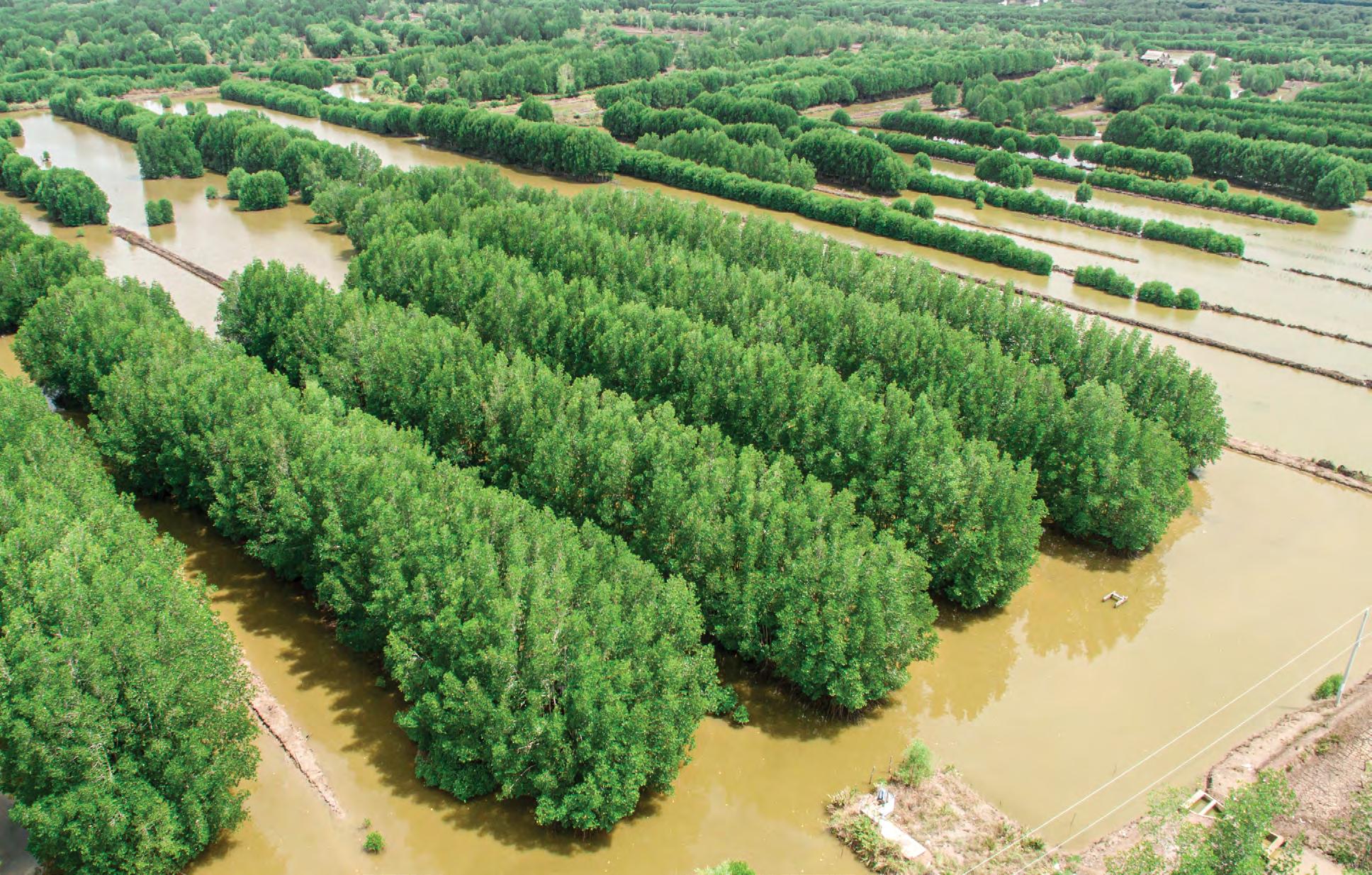
“At first, local communities started with farming freshwater prawn and black tiger shrimp

in various forms, such as farming freshwater prawn in rice fields as well as along rivers and canals,” the organization explained. “After that, they developed brackish and saltwater tiger shrimp farming under forest canopy, natural swamps, or intercropping in rice fields. Basic forms include extensive farming, which facilitates the natural growth of shrimps, and intensive farming, notably for whiteleg shrimp, developed in the last two decades.”
Vietnam has the capacity to accommodate the development of millions of hectares of shrimp farms – “the largest area among shrimp farming countries,” VASEP said, adding that the existing annual output for black tiger shrimp, freshwater prawn, and whiteleg shrimp is about 300,000 tons, 40,000 tons, and over 700,000 tons, respectively.
A large and diverse environment isn’t the only factor that sets Vietnam’s shrimp industry apart, according to VASEP – the country’s mastery when it comes to frozen processing is also a difference-maker.
“The wide range of deep-processed products can meet all the strict requirements of the world’s large and high-end distribution systems,” VASEP said. “Many large processing factories with advanced equipment are located near shrimp farming areas, ensuring supply of the freshest and best-quality products.”
The United States, Japan, the European Union,
China, and South Korea are the top destination markets for Vietnam’s shrimp products, including its frozen offerings. These target markets tend to value Vietnam’s sustainable development and innovation strategies, VASEP said.
“The government of Vietnam has formulated strategies to promote the sustainable development of the shrimp industry, focusing on ecological balance and animal welfare while remaining steadfast in pursuing the development of a green economy and a
circular economy for the aquaculture industry,” the organization said. “Constant efforts are made by business owners to improve shrimp farming technologies; to experiment with green-energy applications in farming to minimize environmental impacts; and to apply international farming standards – including those outlined in Aquaculture Stewardship Council and Best Aquaculture Practices certifications – as well as corporate social responsibility to the farming system.”
While Vietnam’s seafood exports are expected to continue to dip through the first quarter of 2023, VASEP forecasted that a recovery in global demand for the country’s seafood products is likely in store for the second half of the year.
“Currently, orders from customers have dropped sharply, with many seafood businesses having not received orders for delivery in the first quarter of 2023,” VASEP Chief Communications Officer Le Hang said. “We hope that from the second quarter or at least the second half of 2023, market demand will recover, then we will have a momentum to boost exports again.”



Seafood products from Vietnam are on display at Seafood Expo Global/Seafood Processing Global in Hall 4 at Stands 4B501, 4B601, and 4C600.

VIETNAM’S SHRIMP SECTOR achieved overall sales of USD 4.3 BILLION (EUR 4 billion) in 2022.
7 Portes
Pg. d’Isabel II, 14 933 193 033 reserves@7portes.com www.7portes.com/reserves
Cuisine: Catalan
1881 per Sagardi
Pl. Pau Vila, 3 (Palau de Mar).
Museu d’Història de Catalunya 679 202 040 reservas@sagardi.com www.gruposagardi.com
Cuisine: Catalan, Mediterranean
Agua
Pg. Marítim de la Barceloneta, 30 932 251 272 comercial@grupoesencia.es www.restauranteagua.com
Cuisine: Mediterranean, “Tapas”
Agüelo Taberna
Avinyó, 37 933 102 325 restaurante@aguelotaberna.es www.aguelotaberna.es
Cuisine: Mediterranean
Arcano Restaurante
Mercaders, 10 932 956 467 info@arcanobcn.com www.arcanobarcelona.com
Cuisine: Mediterranean, Market-fresh
Arenal Restaurant
Passeig Marítim Barceloneta, s/n 932 210 810 info@arenalrestaurant.com
https://gruparenal.com/arenal/
Cuisine: Catalan, Market-fresh
Barceloneta
L’Escar, 22 932 212 111 info@restaurantbarceloneta.com www.restaurantbarceloneta.com
Cuisine: Mediterranean
Bistro Helena
Via Laietana, 30. Grand Hotel Central 932 957 905 info@bistrohelena.com www.grandhotelcentral.com/es/restaurantes/ bistro-helena
Cuisine: Mediterranean, Market-fresh
Brisa Palau de Mar
Pl. Pau Vila, 1 (Ed. Palau de Mar) 931 311 549 comercial@grupoesencia.es www.brisapalaudemar.com
Cuisine: Mediterranean, “Tapas”
Cadaqués
Reina Cristina, 6 932 687 033 reserves@sagardi.com www.restaurantcadaques.com
Cuisine: Catalan, Mediterranean
Caelis – (1 estrella Michelin)
Via Laietana, 49. Hotel Ohla Barcelona 935 101 205 info@caelis.com www.caelis.com
Cuisine: Signature, Mediterranean
Calabrasa
Passeig del Born, 27 933 100 786 calabrasabcn@gmail.com www.calabrasa.com
Cuisine: Catalan, “Tapas”
Can Ramonet Maquinista, 17 933 193 064 reserves.canramonet@grupramonet.com www.canramonet.es
Cuisine: Catalan, Mediterranean
Can Ros
Almirall Aixada, 7 932 215 049 reserva@canros.cat www.canros.cat
Cuisine: Mediterranean, “Tapas”
Can Solé
Sant Carles, 4 932 215 012 reserves@restaurantcansole.cat www.cansole.cat
Cuisine: Catalan, Mediterranean
Cañete
Unió, 17 932 703 458 reservas@barcanete.com www.barcanete.com
Cuisine: Catalan, “Tapas”
Casa Rafols
Ronda Sant Pere, 74 936 258 200 hola@casarafols.com www.casarafols.com
Cuisine: Market-fresh, “Tapas”
CDLC Barcelona
Passeig Marítim de la Barceloneta, 32 932 240 470 info@cdlcbarcelona.com www.cdlcbarcelona.com
Cuisine: International
Centonze
La Rambla, 111 933 164 660 restaurante.centonze@lemeridien.com www.centonzerestaurant.com
Cuisine: Mediterranean, Market-fresh
Cuines de Santa Caterina
Av. de Francesc Cambó. Mercat de Santa Caterina, (local 1-26) 932 689 918 comercial@grupotragaluz.com www.grupotragaluz.com/restaurante/ cuines-santa-caterina/
Cuisine: Mediterranean, “Tapas”
Dos Palillos (1* Michelin) Elisabets, 9 933 040 513 dospalillos@dospalillos.com www.dospalillos.com
Cuisine: Signature (Japan, China, and Southeast Asia)
El Nou Ramonet Carbonell, 5 932 683 313 reserves.elnouramonet@grupramonet.com www.grupramonet.com
Cuisine: Mediterranean, “Tapas”
Glaciar
Plaça Reial, 3 933 425 118 glaciar@gruplapomada.com www.restaurantglaciar.com
Cuisine: Catalan, Mediterranean Hard Rock Cafe Barcelona
Pl. de Catalunya, 21 932 702 305 barcelona_events@hardrock.com www.hardrock.com/barcelona
Cuisine: International (American)
Ikoya Izakaya
Av. de Francesc Cambó, 23 933 101 818 reservas@gruposadgardi.com www.ikoyaizakaya.com
Cuisine: Signature, International (Japanese)
Irati Taverna Basca Carrer del Cardenal Casañas, 17 933 023 084 reservas@gruposagardi.com www.iratitavernabasca.com
Cuisine: Basque, Market-fresh La Mar Salada Pg. Joan de Borbó, 58 932 212 127 reserva@lamarsalada.cat www.lamarsalada.cat
Cuisine: Mediterranean, Signature Marina Bay Marina, 19-21 932 211 514 marina@monchos.com www.monchos.com
Cuisine: Mediterranean, “Tapas” My Way Carrer de les Heures, 4-10 934 125 279 reservasmyway@grupodegusplus.com www.restaurantemyway.com
Cuisine: Mediterranean
Oaxaca Pla de Palau, 19 933 190 064 reservas@gruposagardi.com www.oaxacacuinamexicana.com
Cuisine: Signature, International (Mexican)
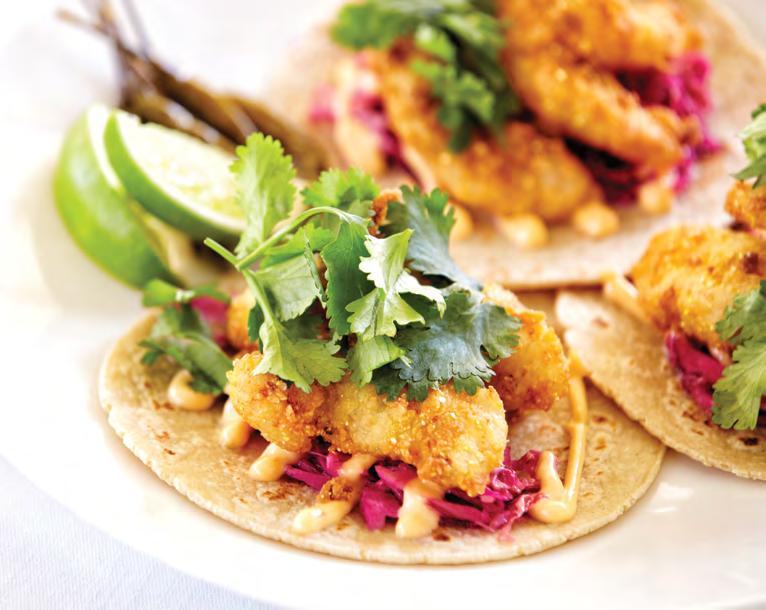
Pasa Tapas Dr. Aiguader, 6-8 933 194 233 pasatapas@pasatapas.net www.pasatapas.com
Cuisine: Catalan, “Tapas”
Passadís del Pep Pla del Palau, 2 933 101 021 restaurant@passadis.com www.passadis.com
Cuisine: Mediterranean, Market-fresh
Rossini Pl. Reial, 13 933 435 809 reservasrossini@grupodegusplus.com www.restauranterossini.com
Cuisine: International (Italian), Mediterranean
Sagardi Bcn Gòtic Argenteria, 62 679 202 040 reservas@sagardi.com www.gruposagardi.com
Cuisine: “Tapas”, Basque
Shôko Barcelona Restaurant Lounge Passeig Marítim de la Barceloneta, 36 932 259 200 shoko@shoko.biz www.shoko.biz
Cuisine: International, Mediterranean
Tapa Tapa Maremagnum Moll d’Espanya, 5. Local 10. Maremagnum 932 258 697 reserves-tapatapa_maremagnum@angrup.com www.tapataparestaurant.com
Cuisine: “Tapas”, Mediterranean
The Green Spot
De la Reina Cristina, 12 938 025 565 comercial@grupotragaluz.com www.encompaniadelobos.com
Cuisine: Mediterranean
Torre de Altamar
Pg Joan de Borbó, 88 932 210 007 eventos@torredealtamar.com www.torredealtamar.com
Cuisine: Mediterranean, Signature
Velissima
Passeig de Borbo, 103 936 268 426 astrid@velissima.com www.velissima.com
Cuisine: Market-fresh, International (Italian) Xup Xup Pg Marítim Barceloneta, s/n 932 240 353 info@xupxuprestaurant.com www.gruparenal.com
Cuisine: Mediterranean
4 Makis Muntaner, 193 933 978 126 hola@4makis.cat www.4makis.cat
Cuisine: International (Japanese) Alta Taberna Paco Meralgo Muntaner, 171 934 309 027 info@restaurantpacomeralgo.com www.restaurantpacomeralgo.com
Cuisine: “Tapas”, Catalan
Amar Barcelona Gran Via de les Corts Catalanes, 668 931 039 988 reservas@amarbarcelona.com www.hotelpalacebarcelona.com/restaurantsbars/amar-barcelona-restaurant
Cuisine: Mediterranean
Balmes 103 Balmes, 103-105. Hotel Barcelona Center 932 730 000 balmes103@hotelescenter.com www.hotelescenter.es/hotel-barcelona-center/ gastronomia/
Cuisine: Mediterranean, Catalan Bar El Velódromo Muntaner, 213 934 306 022 velodromo@velodromo.cat www.moritz.com
Cuisine: Catalan, “Tapas” BarcelonaMilano Villarroel, 190-192 934 307 279 info@restaurantbarcelonamilano.com www.restaurantbarcelonamilano.com
Cuisine: Mediterranean, “Tapas” Bembì, Modern Indian Consell de Cent, 377 935 024 952 info@bembi-barcelona.com www.bembi-barcelona.com
Cuisine: International (Indian) Bodega Joan Roselló, 164 932 204 756 www.bodegajoan.com
Cuisine: Catalan, Mediterranean Casa Amàlia 1950 Passatge del Mercat, 14 934 58 94 58 hola@casaamalia.com https://casaamalia.com
Cuisine: Market-fresh, Mediterranean

Casa Moritz
Rambla Catalunya, 79 938 269 062
casamoritz@moritz.com
www.casamoritz.com
Cuisine: Market-fresh, “Tapas”
Chichalimonà
Pg. de Sant Joan, 80 932 776 403 info@chichalimona.com www.chichalimona.com
Cuisine: Market-fresh, “Tapas”
China Crown Barcelona Casp, 48 933 158 095 barcelona@restaurantechinacrown.com
www.restaurantechinacrown barcelona.com
Cuisine: Internacional (chinese)
Cinc Sentits – (2* Michelin) Entença, 60 933 239 490 info@cincsentits.com www.cincsentits.com
Cuisine: Signature, Catalan Citrus Restaurant & Sushi Bar Pg. de Gràcia, 44, 1er 934 872 345 reserves-citrus@angrup.com www.citrusrestaurant.com
Cuisine: Mediterranean, International Disfrutar - (2* Michelin) Villarroel, 163 933 486 896 info@disfrutarbarcelona.com www.disfrutarbarcelona.com
Cuisine: Signature, Mediterranean
El Cangrejo Loco
Aribau, 115-117
932 210 533 cangrejo@elcangrejoloco.com www.elcangrejoloco.com
Cuisine: Mediterranean
elPetitFIRO

Av. Gaudí, 81 935 313 736 chocofiro@gmail.com
www.grupfiro.com
Cuisine: “Tapas”, Market-fresh
Fàbrica Moritz Barcelona
Ronda Sant Antoni, 41 934 260 050 fabricamoritz@moritz.cat
www.moritz.cat
Cuisine: Market-fresh, “Tapas”
FIROtast
Av. Gaudí, 83 934 507 454 chocofiro@gmail.com www.grupfiro.com
Cuisine: Market-fresh, Mediterranean
L’Olivé Balmes, 47 934 521 990 info@restaurantlolive.com www.restaurantlolive.com
Cuisine: Catalan, Mediterranean
Lasarte restaurant (3* Michelin) Mallorca, 259 934 453 242 info@restaurantlasarte.com www.restaurantlasarte.com
Cuisine: Signature
Mordisco
Ptge. de la Concepció, 10 934 879 656 mordisco@mordisco.com www.mordisco.com
Cuisine: Market-fresh, Mediterranean
Mussol Aragó
Aragó, 261

934 876 151
www.mussolrestaurant.com
Cuisine: Catalan
Mussol Arenas
Gran Via Corts Catalanes, 373-385
Local R-2. Centre Comercial Arenas
934 253 543
www.mussolrestaurant.com
Cuisine: Catalan
Mussol Casp
Casp, 19 933 017 610 www.mussolrestaurant.com
Cuisine: Catalan Nectari València, 28 932 268 718 / 633 532 635 reserves@nectari.es www.nectari.es
Cuisine: Mediterranean, Signature Sagardi Bcn Centre Muntaner, 70-72 937 060 706 reserves@sagardi.com www.grupsagardi.com
Cuisine: “Tapas”, Basque Season Restaurant Aribau, 125 934 531 044 hola@seasonrestaurante.com www. seasonrestaurante.com
Cuisine: Mediterranean, “Tapas”
Tapa Tapa Arenas Llançà, 15-21. Centre Comercial Arenas. Local B-4C 932 924 644 reserves-tapatapa_arenas@angrup.com www.tapataparestaurant.com
Cuisine: “Tapas”, Mediterranean
Tapa Tapa Rambla Catalunya Rambla de Catalunya, 7 933 427 516 tt9.de@angrup.com www.tapataparestaurant.com
Cuisine: “Tapas”, Mediterranean Tierra Brava Casanova, 133 (Mercat del Ninot) 931 311 550 comercial@grupoesencia.es www.tierradelninot.com
Cuisine: Market-fresh, Signature
Tracatrá Ronda Sant Pere, 7 936 291 867 astrid@tracatrabarcelona.com www.tracatrabarcelona.com
Cuisine: Catalan, Signature Txapela Pg. de Gràcia, 58 Pg. de Gràcia, 58 934 872 279 tx2.de@angrup.com www.txapelarestaurant.com
Cuisine: Basque Windsor Còrsega, 286 932 377 588 info@restaurantwindsor.com www.restaurantwindsor.com
Cuisine: Catalan, Market-fresh
Xerta Restaurant - (1* Michelin)
Còrsega, 289 937 379 080 info@restaurant.com
www.xertarestaurant.com
Cuisine: Signature
4 Latas Mandri Mandri, 58 932 370 990 4latasmandri@gmail.com www.4latas.bar
Cuisine: “Tapas”
Flash Flash Tortillería La Granada del Penedès, 25 932 370 990 flash@flashflashbarcelona.com www.flashflashbarcelona.com
Cuisine: Mediterranean
Ikibana Sarrià Doctor Fleming, 11 935 481 312 eventos@ikibana.com
www.ikibana.com
Cuisine: Internacional (Japanese, Brazilian)
Il Giardinetto
La Granada del Penedès, 22 932 187 536 giardinetto@ilgiardinetto.es www.ilgiardinetto.es
Cuisine: International (Italian)
Patrón Travessera de Gràcia, 44 934 146 622 info@patron-restaurant.com www.patronrestaurante.com
Cuisine: Mediterranean, Market-fresh
Via Veneto - (1* Michelin) Ganduxer, 10 932 007 244 reservas@viaveneto.es www.viavenetorestaurant.com
Cuisine: Signature, Market-fresh
Botafumeiro Gran de Gràcia, 81 932 184 230 info@botafumeiro.es www.botafumeiro.es
Cuisine: Galician, Mediterranean Nomo Gràcia Gran de Gràcia, 13 934 159 622 nomo@gruponomo.com www.gruponomo.com
Cuisine: International (Japanese)
Oassis Natural Cooking Jardinets de Grácia Passeig de Grácia, 116 936 736 084 reserves-oassis2@angrup.com www.oassisnaturalcooking.com
Cuisine: International
Bistró Mató Bisbe Català, 10 932 554 695 mato@gruposantelmo.com http://gruposantelmo.com
Cuisine: Catalan, Mediterranean
Òxid la Tertulia Carrer de Morales, 15 936 883 081 oxidlatertulia@gmail.com www.oxidlatertulia.com
Cuisine: Catalan, Mediterranean
4 Latas Poblenou Rambla de Poblenou, 125 936 241 716 4lataspoblenou@gmail.com www.4latas.bar
Cuisine: “Tapas”
L’Escamarlà
Pg. Marítim del Bogatell, 40 932 211 366 escamarla@happy.es, info@happy.es www.happy.es/lescamarla
Cuisine: Mediterranean
La Fonda del Port Olímpic Moll de Gregal, 7-8-9. Port Olímpic 932 212 210 info@lafondadelport.com www.lafondadelport.com
Cuisine: Mediterranean
Mussol Glòries
Av. Diagonal, 208. Centre Comercial Glòries 934 861 820 www.mussolrestaurant.com
Cuisine: Catalan
La Font de Prades (Poble Espanyol)
Av. Francesc Ferrer i Guàrdia, 13-27 934 267 519 lafont@lafontdeprades.cat www.lafontdeprades.cat
Cuisine: Catalan, Mediterranean Quirat Restaurant
Avinguda Rius i Taulet, 1-3 Hotel Intercontinental Barcelona 934 262 223 www.quiratrestaurant.com
Cuisine: Market-fresh, Signature
Terraza Martínez Carretera de Miramar, 38 931 066 052 info@martinezbarcelona.com www.martinezbarcelona.com
Cuisine: Mediterranean, Market-fresh Xalet de Montjuic Av. Miramar, 31 933 249 270 xaletdemontjuic@gruptravi.com www.gruptravi.com
Cuisine: Mediterranean



Can Cortada Av. de l’Estatut de Catalunya, s/n 934 272 315 cancortada@gruptravi.com www.gruptravi.com
Cuisine: Catalan
Can Travi Nou
Final c/ Jorge Manrique, s/n. Parc de la Vall d’Hebron 934 280 301 cantravinou@gruptravi.com www.gruptravi.com
Cuisine: Catalan, Mediterranean











 BY NED DALY
BY NED DALY
Many fishers working in the global seafood industry face living income gaps, a plight that sustainability advocates have been determined to irradicate. Susanna Balaguer Serra of the Impact Institute is one such sustainability consultant actively raising awareness about the reality of underearning. She will be a featured speaker for the Seafood Expo Global conference session “Supply chain equity: Value distribution in blue swimming crab and mahi-mahi,” taking place on 26 April from 10:45-11:45. Here, Balaguer Serra shares her insights about the struggles of underearning and closing the living income gap in seafood.
SEAFOODSOURCE: What is the project you are working on in seafood?
BALAGUER SERRA: In the seafood industry, we are working on understanding how value is distributed along the supply chain of selected fisheries and on capturing the living income gap faced by fishers. When the research is completed, we aim to share with a wide audience the findings from our assessments, which highlight the inequitable distribution of value and inherent underearning of fishers. Underearning is a measure of the difference between how much self-sufficient actors earn and the living income for a given area. By tackling multiple and diverse channels of communication in different
forms, we aim to reach, inform, and inspire the target audience, which includes the seafood industry; the grantees of our client, the Walton Family Foundation; and the scientific community.
SEAFOODSOURCE: How did you get involved?

BALAGUER SERRA: We started our collaboration with the Walton Family Foundation in October 2021. They were interested in gaining a deeper understanding of the economic status of fishers with the goal of gaining sufficient actionable information for decision-making and strategy development required to support and preserve fishery communities. We assessed the blue swimming crab fishery in Indonesia and the mahimahi fishery in Peru. These are export-oriented artisanal fisheries, with approximately 80 percent of the final product being exported to the United States. In particular, we conducted both a value distribution assessment and a living income gap assessment based on profit-cost structures for different actors in the supply chain. The objective of these assessments is to capture the economic wellbeing of upstream actors in the chain. It provides key insights and answers to questions such as: How much value do fishers retain? How does this compare to the value retained by downstream partners, such as processors or retailers? What is the average living income gap?
At Impact Institute, we have more than 10 years of experience in conducting value distribution and living income gap assessments from a wide variety of crops across multiple geographies. We have a unique focus on the wellbeing of smallholder farmers, from both a social and an environmental point-of-view. Socially, we focus on measuring the impact of underearning and we assess other impacts such as employee health and safety, freedom of association, and child labor. Environmentally, we capture the impact that cultivation has on soil, air, water, and climate, amongst others. Not only do we measure this, but we also use the insights
from our assessments to guide organizations in minimizing this impact and closing the living income gap.
SEAFOODSOURCE: What is the value of doing this type of assessment?
BALAGUER SERRA: By conducting this type of assessment, stakeholders in the industry can create actionable change. For instance, with a living income gap assessment one can tailor interventions in the field to tackle the drivers of living income. Is it a matter of cost? A matter of production? A matter of price? Data is key to integrate impact in decision-making. To do so, you need to dissect the data and understand what is required in each specific situation. Once you know what part of the equation you need to tackle, you can create bespoke interventions to minimize the negative impact and improve the wellbeing of farmers. Further, these assessments can be used to mobilize all actors in the system, from processors to consumers, including NGOs and public authorities. It all boils down to finding measures that enhance the position of the farmer/fisher in the value chain, by gaining knowledge about your key producers and their working conditions. For instance, from the assessment of the blue swimming crab, we found that their cost structures are relatively high. An example of a bottom-up intervention recommended to tackle the cost dimension is to create a community savings cooperative, where fishers can contribute to group savings and take out loans. This has proven to be a successful measure for accessing capital in other fisheries.
However, performing these assessments will not be voluntary anymore. Upcoming E.U. regulations require organizations to start assessing and monitoring working conditions and human rights violations in their value chain, for both direct workers of an organization and all workers in the chain. These upcoming E.U. regulations, namely the CSRD [Corporate Sustainability Reporting Directive] as well as the CSDD [Corporate Sustainability Due Diligence],
are intended to go beyond transparency by disclosing sustainability information across several topics, from environmental and social impact to governance and internal control. Further, organizations need to demonstrate their progress in preventing and mitigating human rights breaches, which includes demonstrating the progress in closing living income gaps for fishers/farmers.

SEAFOODSOURCE: What are you learning about value distribution in mahi and blue swimming crab?
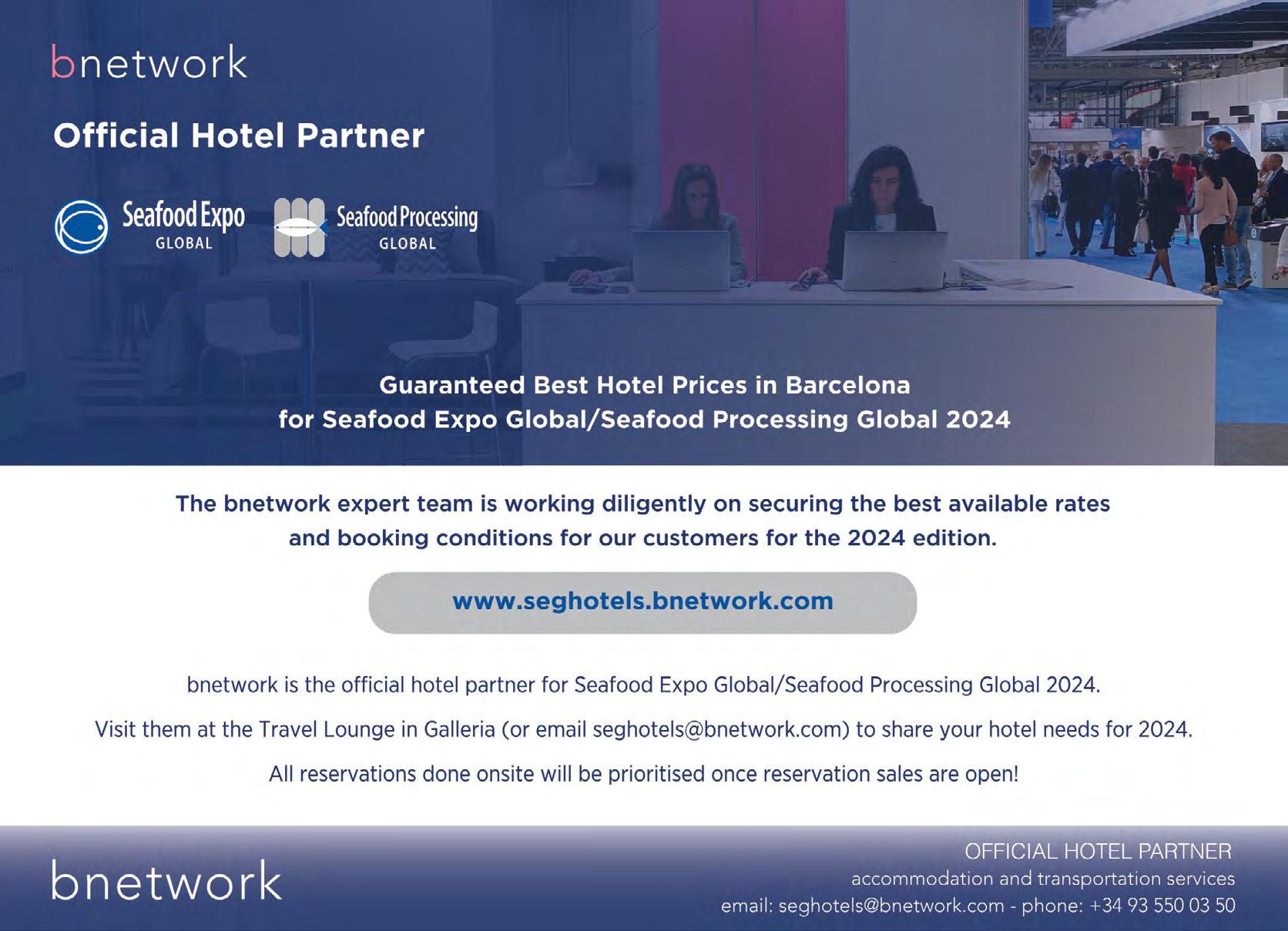
BALAGUER SERRA: Through our work with the Walton Family Foundation, we found out that more than 60 percent of blue swimming crab fishers and almost 40 percent of mahi fishers earn below a living income. This is alarming. Most alarming is the fact that these results are common across other food industries, such as the banana or the coffee industry. Redistribution of value is key to guarantee that actors at the beginning of the supply chain have a decent living. Less than 1 percent of shareholder payouts from a group
of American and European supermarkets are required to close the living wage gap for all formal workers in Brazil’s largest coffeeproducing state ( Source: Oxfam International, 2021).
I believe that achieving living incomes should be a goal for all organizations working directly or indirectly with agricultural producers and fishers. Monitoring the progress to achieve this goal increases transparency and reduces both compliance and reputational risk. However, I would also like to point out that there is more to poverty than economic wellbeing. Other important dimensions that organizations should pay attention to include access to services, housing, voice in the community, health, education, living standards, access to information, inclusiveness, and violence, among others. It is important to further the
frameworks and methodologies out there to capture the big picture of poverty faced by farmers and fishers across the globe to ensure the most relevant interventions are formulated to address the multiple dimensions of poverty. Value distribution is not only about profit-cost structures from different players in the value chain, but also about power imbalances, risk, and fairness.
Conference sessions, unless otherwise noted, require a conference registration. If you wish to upgrade your badge to include conference sessions, you can do so at the registration desk in CC5.
Aquaculture
Seafood Business & Leadership
Corporate Social Responsibility
Food Safety, Policy
Sustainability
Traceability, Transparency
Plastics & Climate Change
TUESDAY 25 April 2023
12:00 - 13:00
Moderator: Greg Brown, GDST
Panelists:
• Francisco Aldon, MarinTrust
• Jayson Berryhill, Wholechain/Envisible
• Leah Buckley, Global Fishing Watch
• Marcelo Hidalgo, FIA/PNG
• Huw Thomas , GDST Room: CC 5.2
Regulatory changes and increased customer expectations in every major marketplace are making supply chain actors responsible for capturing and transmitting traceability data from harvest to point of sale. Seafood companies and their supply chains must deal with the increasing awareness and accelerating global demand to address provenance, due-diligence, and fishery management concerns. The Global Dialogue on Seafood Traceability (GDST) will show you how leading industry players, association representatives, technical and sustainability experts use GDST standards, expertise, tools, and services to achieve the required transparency. Additionally, find out how the inclusive GDST Dialogue process will continue to progress the standard and keep it relevant within the evolving regulatory and responsible sourcing environment.
12:00 - 13:00
Moderator: Chris Chase, SeafoodSource.com
Panelists:
• Christian Chramer, Norwegian Seafood Council
• Arturo Clement, SalmonChile
• Javier Garat, International Coalition of Fisheries Association (ICFA)
• Mauricio Orellana, ORCA SEAFOODS/COMEPESCA
Room: CC 5.3
*For the most up-to-date information, including panelist updates, visit: seafoodexpo.com/global/ conference-program

The seafood industry and governments across the world have long strived to increase seafood consumption, with varying levels of success. Per-capita consumption has fallen in a number of countries, even as more and more information continues to come out about the health benefits of seafood. As a result, seafood industry groups across the world are all trying to answer one question: How do we build future seafood consumers? Join a panel of experts as they share success stories and case studies from different countries.
14 : 00 - 14:45
FREE SPONSORED PRESENTATION: Sustainable Seafood Production:
Speaker: Nafiha Usman, DNV Room: CC 5.2
The seafood industry is central to the blue economy. While fisheries and aquaculture companies have different challenges, they converge over food security and a continued food supply. To feed a growing population, aquaculture must grow at the same time as fisheries must become more sustainable. This increases pressure on our ecosystems and demands on natural resources. Balanced use of natural resources from both land and sea is essential to increase sustainable seafood production while protecting our ecosystems and biodiversity.
In such a landscape, demands of increased supplychain resilience and transparency are also growing. And all companies part of the seafood value chain must respond. Standards and independent certifications like MSC Fishery; ASC Feed and ASC Farm; GlobalGAP Aqua and Chain of Custody already play a critical role. However, how is assurance evolving and how can data-drive assurance contribute to further improve
traceability and sustainable growth? Join in for an interactive session hosted by Nafiha Usman, Principal Aquaculture Analyst, DNV. We will provide insight and engage you in a discussion on sustainable seafood production challenges, how aquaculture and fishery companies work to address them, and how certification and data-driven assurance can contribute.
14:00 – 14:45
FREE SPONSORED PRESENTATION: Announcing the Bycatch Solutions
Hub: Connecting Seafood Companies and Innovative Fisheries Around the World to Reverse the Decline of Ocean Wildlife
Moderator: Jim Cannon, Sustainable Fisheries Partnership (SFP)
Panelists:
• Nicola Bedding, Nestle Purina
• Kathryn Novak, Sustainable Fisheries Partnership (SFP)
Room: CC5.3
Nes tle Purina, manufacturer of some of the world’s most trusted and popular pet care products, and Sustainable Fisheries Partnership (SFP) will launch the Bycatch Solutions Hub, a web-based platform connecting retailers and businesses that want to financially support projects to reduce ocean wildlife bycatch with organizations capable of implementing in-the-water solutions.
Bycatch, the capture of non-target species in fishing, such as sharks, marine mammals, sea turtles and seabirds, is still occurring globally on a significant scale, despite an increase in the number of certified fisheries and improvement projects. The panel will also include an improvement project implementer.
Panelists will discuss how the Hub can help seafood industry stakeholders at all levels of the supply chain overcome the barrier of fragmented information about bycatch solutions, and enable industry-led action to protect ocean wildlife at scale.

(TUESDAY CONTINUED)
Speakers:
• Roberto Carlos Alonso, Anfaco-Cecopesca
• Guus Pastoor, EU Fish Processors and Traders AIPCE/CEP Room: CC 5.2
This presentation will start with an overview of the current status of the E.U. processing industry, including production, trade, and market trends. Speakers will discuss the current socio-economic situation, taking into consideration the impact of COVID-19 and the Ukraine-Russia conflict on the seafood sector. Over the past couple years, the sector has remained resilient and competitive in an environment of uncertainty and constant change. Next, speakers will analyze how the new global reality is forcing the sector to transform to increase value while still supplying the market and maintaining the high standards of quality, food safety, and sustainability. Challenges to reactivate consumer demand, increase value, ensure a constant supply of raw materials, and ensure a level playing field in the market will also be included. Looking forward, innovation based on digitalization, sustainable production, and growth will be essential to success along with internationalization.
Moderator: Larsen Mettler, S2G Ventures
Panelists:
• Katherine Bryar, BioMar Group
• Andreas Grimminger, Enthos Circular Feed Technologies
• Hannah Lucas, Benson Hill Room: CC 5.3
The numerous options and benefits of alternative protein show a promising path of adaptation and large-scale commercialization toward a future where feed can be affordable, readily available and resilient. Due to growing awareness of the enviro,nmental consequences of intensive agriculture practices, as well as flat or declining wild harvests, aquaculture is expected to continue expanding its footprint as an essential worldwide protein. Aquaculture has grown quickly enough to keep up with demand so far; however, the industry’s reliance on wild-caught feed is taking a toll on wild fish stocks. Currently, 70 to 80 percent of aquaculture feed consists of wild-caught fishmeal and oil, and approximately 10 percent of wild-caught fish are used to feed farmed fish. With dwindling fish stocks, both aquaculture and terrestrial farmers are turning to emerging farmed, byproducts, or invasive species alternatives. While plant-based options, such as soy, have been available for years, they are compromised by inadequacies in fatty acid and amino acid profiles, and rely on production practices with negative environmental impacts. These plant-based feed issues are increasingly top of mind for various stakeholders, including consumers, financiers, certifying agencies, and NGOs.
Moderator: Anne Zollner, U.S. Department of Labor
Panelists:
• Kirill Buketov, International Union of Food, Agriculture and Allies Workers’ Associations - IUF
• Scott Lyon, International Labour Organisation
• Laura Van Voorhees, U.S. Department of Labor
• Chris Williams, International Transport Workers’ Federation Room: CC 5.2
Fishing is hard work that involves many obvious hazards,
WEDNESDAY 26 April 2023
Moderator: Zacari Edwards, International Pole & Line Foundation (IPNLF)
Panelists:
• Tulika Bansal, Danish Institute for Human Rights
• Andy Hickman, Seafood Ethics Action (SEA) Alliance
• Cristina Pita, University of Aveiro
Room: CC 5.2
Ensuring that socially responsible best practices are occurring throughout seafood supply chains is paramount for business across the globe. Many companies are seeking to source responsible seafood, while also committing to aligning with the sustainable development goals (SDGs); including SDG 14b- providing access for small-scale artisanal fishers to marine resources and markets. As such, securing, safeguarding and building opportunities for coastal communities, to participate in highly competitive global seafood markets at the same time as addressing social responsibility and human rights issues in fisheries
including the risk of drowning or injury from equipment. But some hazards that workers face are less obvious, including the risk of forced labor. While some forms of forced labor can easily be identified, others cannot. For example, some fish workers do not have written contracts, so determining whether working conditions and/or pay are appropriate and fulfilled cannot be done through a quick review of documentation. Some tools exist to assist authorities in determining whether forced labor might exist on a fishing vessel or in a fishing fleet, but these have been targeted to specific countries. To address the need for tools that could be applied in a variety of countries and situations, U.S. Department of Labor/Bureau of International Labor Affairs offers policy tools, projects, and important research and reports designed to combat abuses in the fishing sector. Among these programs, U.S. Department of Labor funded the International Labor Organization to develop a new set of global forced labor detection tools. This fisher handbook provides guidance not only to labor and maritime officials charged with labor or maritime investigations, but also to civil society organizations and others who come into contact with fishers along their journey to and from port. All of these practical tools provide information on indicators of forced labor and resources for these front line responders to report and follow up on suspected cases of forced labor.
Moderator: Cliff White, SeafoodSource.com
Panelist: Joe Bundrant, Trident Seafoods Room: CC 5.3
Bouncing from the turmoil of the COVID-19 pandemic to the turbulence of the global inflationary crisis, global seafood industry executives have had their leadership and decision-making capabilities tested to their limits in recent years. Join Trident CEO Joe Bundrant, and other senior seafood industry principals to learn about how they have managed their companies during the recent unprecedented upheaval and how they are positioning their groups to take survive and thrive into the future.
is a key challenge facing many in the sector. Small-scale fisheries face various barriers within these challenges that differ from industrial distant water fleets, but many of the proposed solutions are the same. Small-scale fisheries often lack the financial resources to make necessary investments to ensure market demanded safeguards are put in place. However, if small-scale fisheries cannot meet these demands and lose market access, it exacerbates vulnerabilities, undermining other forms of human rights as a result. This exploratory session with experts from the NGO community will deep-dive into multiple aspects of social responsibility in tuna supply chains, human rights in small-scale fisheries, and how companies can take greater responsibility in the elimination of human rights abuses while also aligning with SDG14b.
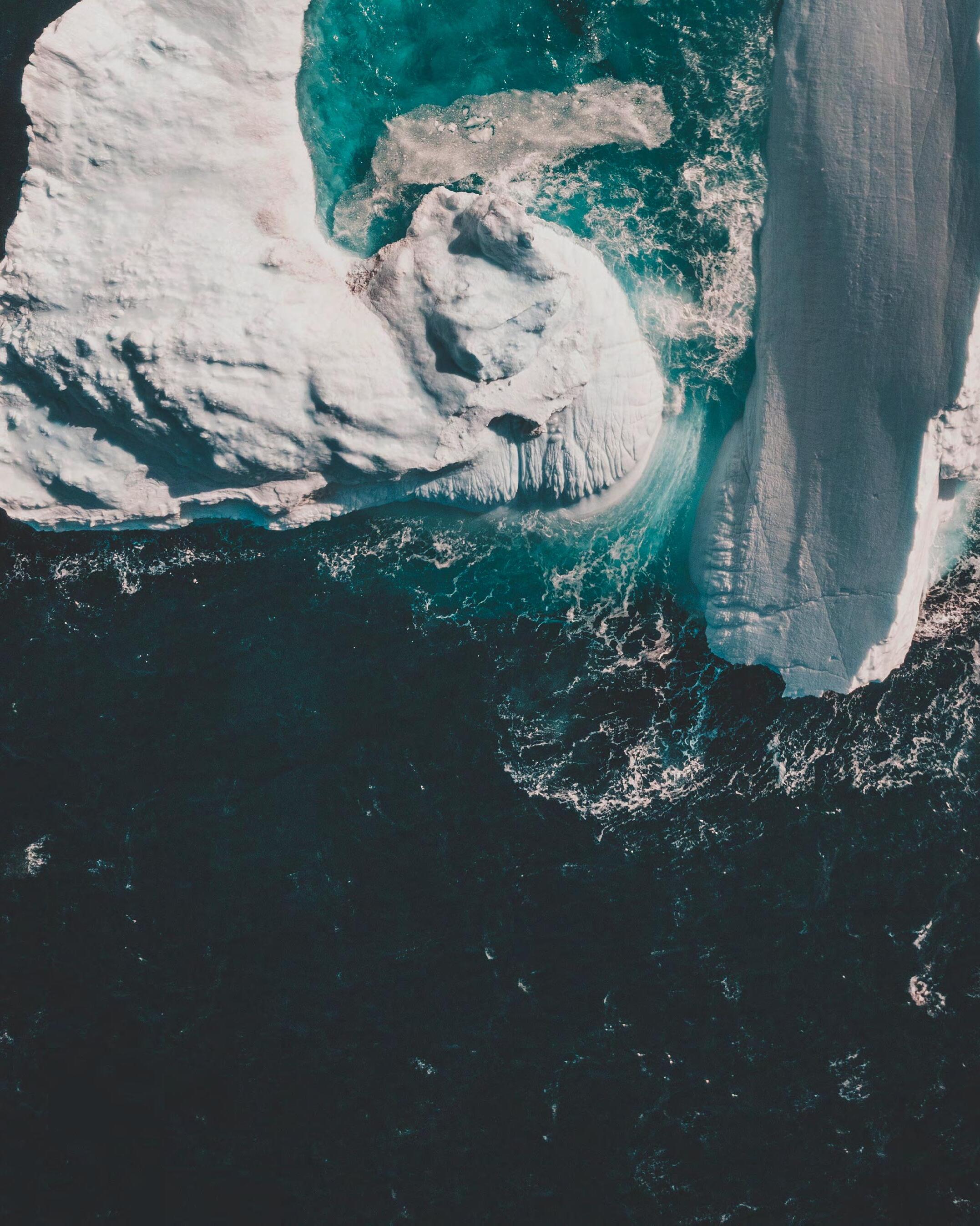
(WEDNESDAY CONTINUED)
10:45 - 11:45
Supply Chain Equity: Value distribution in Blue Swimming Crab and Mahi Mahi and Lessons from the Cocoa Industry
Moderator: Leonardo Pradela, Walton Family Foundation
Panelists
• Susanna Balaguer Serra, Impact Institute
• Peter Zandee, Tony’s Chocolonely Room: CC 5.3
Equity in supply chains is receiving increased focus in business and ESG efforts. In seafood, supply chain equity can help create more stability in assured supply and reduce supply chain turbulence. This session will look at the results of two seafood value chain assessments carried out by The Impact Institute. The assessments were focused on understanding how the value is distributed throughout the chain and what the fishers’ share of the final product was in the Indonesian blue swimming crab and the Peruvian mahi-mahi fisheries.
10:45 - 11:45
Accountability and Transparency: Industry Leadership in the Tuna Sustainability Space
Moderator: Tom Pickerell, Pew Charitable Trusts
Panelists:
• Susan Jackson, International Seafood Sustainability Foundation (ISSF)

• Robin Teets, NGO Tuna Forum Room: CC 5.1
The environmental NGO community has long been a staunch and vocal advocate for more sustainable practices by the global fishing industry. More recently, the NGO community has made strides in harmonizing their priorities to more effectively support willing market and supply chain companies to adopt new or stronger policy commitments to advance sustainable tuna fisheries. With aligned priorities and policies in place, now is the time for a new phase of stakeholder engagement. NGOs working with market and supply chain companies are poised to demonstrate verifiable progress against those promises. Industry leaders engaged in tuna processing, sourcing, and buying recognize the value of accountability and transparency to accelerate sustainability and meet heightened public expectations. For tuna fisheries, a vital, global food source, economic engine, and valuable marine species, there isn’t a moment to lose. Can global stakeholders rise to the challenge? This session shares perspectives from various sectors of the tuna sustainability space on existing market commitments and how these are measured and publicly reported, including presenters from the Global Tuna Alliance (GTA) and the International Seafood Sustainability Foundation (ISSF), as well as representatives from the NGO and retailer communities. Robin Teets of the NGO Tuna Forum will also share an aligned market commitment
verification initiative supported by the Gordon & Betty Moore Foundation, that is being trialed by the GTA and ISSF. This initiative seeks to raise the bar in terms of sustainability commitments reporting that leads to verified actions and positive impacts.
12:00
Navigating the
FREE AND OPEN TO ALL
Speaker: Megan Greene, Global Economist Room: CC 5.1
This is a critical juncture for the global economy in the face of a number of parallel and often related crises. The polycrisis upon us includes the legacy of COVID-19, war in Europe, an energy shock, high and persistent inflation, a global monetary tightening cycle, a strong U.S. dollar, China’s reopening, and global indebtedness–to name a few. This is to say nothing of the turmoil playing out in financial markets as the decades-long negative correlation between bonds and stocks has reversed so both are tanking simultaneously. As years of cheap money come to an end and the tide of liquidity goes back out, we are starting to discover who is swimming naked. Global debt to GDP exceeds 300 percent, but countries are going to have to spend a lot more money to address the polycrisis. In doing so, they will be working against central banks, which will continue to withdraw accommodation in an effort to lean against inflation. Will fiscal and monetary authorities manage to navigate this without causing a global recession? What will a likely recession look like? And what will the global economy look like when the dust has finally settled on the pandemic and war?
14:00 - 14:45
FREE SPONSORED PRESENTATION:

Moderator: Dr. Kristian Moeller, GLOBALG.A.P.
Panelists:
• Caroline Brunias, Metro Food Sourcing
• Remko Oosterveld, GLOBALG.A.P.
• Leonidas Papaharisis, Avramar
• Óscar Vidal, Bureau Veritas Iberia Room: CC 5.2
14:00 – 14:45
FREE SPONSORED PRESENTATION: The Business of Sustainable Seafood

Moderator: J im Cannon Sustainable Fisheries Partnership (SFP)
Panelists:
• Nicole Fischer, Lead Sustainable Seafood, Micarna SA
• Aldi Sud Speaker
• Wenche Grønbrekk, SeaBos
Room: CC5.3
Over the past 15 years, the seafood sector has seen an explosion of innovation to address some of the industry’s biggest environmental and labor challenges. Certification, fishery improvement projects, benchmarking, audits and assessments, ratings, supply chain and traceability tools, and pre-competitive collaborations, including Supply Chain Roundtables (SRs), are innovations to help seafood become more sustainable and competitive in global protein markets. Translating this innovation into standard practice across the entire industry– to reach all seafood sources– requires making these innovations profitable, through increased sales, margins, access to capital, or reduced costs. We will review three different experiences related to this “business of sustainability,” through improved marketing, lower regulatory compliance costs, and better terms from investors. We will show that these sustainability innovations are both business-smart and the right thing to do.
Traceability and Transparency in
Moderator: Vanya Vulperhorst, Oceana in Europe
Panelists:
• Julia Black, Hilton Foods
• Sara Carral Irijoa, Pescados Basiliso
• Francois Mosnier, Planet Tracker
• Huw Thomas, Three Pillars Seafood Room: CC 5.2
Robust traceability and transparency in the seafood industry has proved critical in the fight against illegal, unreported, and unregulated (IUU) fishing. The E.U., which is the world’s largest importer of seafood, has an important role to play in ensuring that the products sold in its market are sustainably sourced. To try and assure this goal, various schemes and initiatives ensuring better traceability and transparency are in place, but do they work? We will use this session to discuss the key tools, challenges, improvements, and the potential benefits that would derive from the implementation of such tools, as well as discussing how we can transfer these learnings to other geographies and markets. The event will be divided into two parts. In the first part, retailers, representatives from the European Parliament, and the catching sector will discuss why traceability and transparency are necessary and how it benefits stakeholders. We will then kick off the interactive session by inviting a large retailer such as Carrefour to discuss how strengthened traceability can help consumers and businesses alike to make informed choices while supporting sustainable fisheries. A recent study by Planet Tracker will then be presented, highlighting how Carrefour locations that sell overfished species have lower profit margins compared to those selling sustainably-sourced and transparent products. Representatives from the European Parliament as well as the catching sector will build on this, explaining why traceability must be strengthened, making the case for the benefits of digital traceability for all seafood products. In
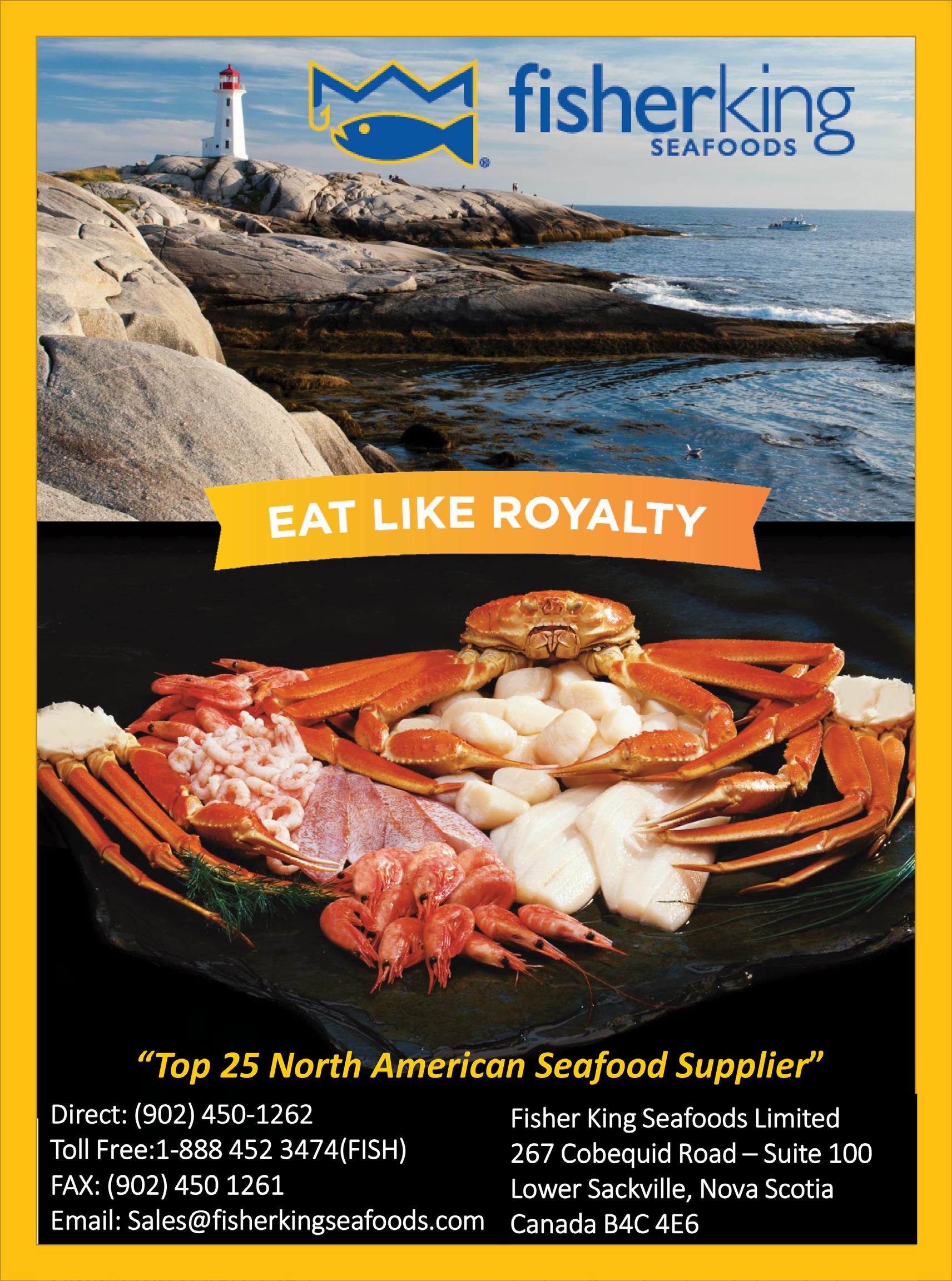
the second part of the session, we will discuss catch documentation schemes (CDS), their use and existing challenges to implementation, as well as pathways to how they can be improved. The session will then continue exploring tools for better traceability and transparency at the global scale. Current schemes differ in how they operate and what information they request, resulting in loopholes that IUU fishing operators can exploit, as well as being confusing and an additional bureaucratic burden on industry. By securing international alignment on the key data elements (KDEs) that market states request, we can create interoperable control systems that are capable of sharing and verifying information about seafood production across geographies. The session will look to include NGO/Government representatives from Japan/U.S. to provide this global perspective. We will also use this session to present the outcomes of a new study looking into the potential benefits, financial or otherwise, of doing business under such globally aligned rules for seafood import control schemes. Key markets still appear reluctant to engage with their counterparts to discuss alignment of requirements, partly due to their confidence in the benefits of their own system and partly due to an understandable concern that such dialogues might result in a race to the bottom/downward alignment. Drawing from the findings of this new study, the session will shed light on these concerns and highlight the demonstrable benefits of harmonised import control schemes. We will use this interactive session to define KDEs, discuss their relevance and importance, and to present an updated comparative analysis on the alignment of import controls in key markets (including the E.U., U.S., Japan, and the Republic of Korea).
15:00 - 16:00
FREE
Moderator: Mariana Toussaint, Food and Agriculture Organization of the United Nations Panelists:
• Claudia Contreras, UNCTAD
• Giorgio Gallizioli, UILApesca
• Javier Garat, International Coalition of Fisheries Association (ICFA )
• Jennifer Dianto Kemmerly, Monterey Bay Aquarium
• Audun Lem, FAO
• Lamia ZNAGUI, Moroccan Federation of Seafood Processing and Valorisation Industries (FENIP) Room: CC 5.3
Products from fisheries and aquaculture are the most significant animal protein exported across international borders. Trade patterns in fisheries and aquaculture typically follow a supply pattern from developing to developed countries to make up for insufficient local production or to fulfil a specific demand connected to the diversity of species not produced locally. A diverse
range of product types has led to the development of a global and complex value chain. The industry has undergone enormous growth over the past few decades, leading to increased global output, trade, and consumption. The sustainability of the sector in all three dimensions – social, economic, and environmental – is no longer an option but a need. The underlying threats from climate change, biodiversity loss and pollution, together with direct threats and crisis, such as the COVID-19 pandemic and the ongoing conflict in Ukraine, demand decisive action in the sector. The long-term sustainability of the sector is crucial for the livelihoods, food security, and nutrition of billions of people. The FAO will host an event during the Seafood Expo Global with the participation of experts from the sector, who will share their experiences and expertise with the audience. The event will discuss the major challenges for fisheries and aquaculture products, such as climate change, and also will focus on the impact of the recently approved WTO Agreement on Fisheries Subsidies, particularly from the perspective of sustainability.
Speaker: Àngels Segura, AECOC
Room: CC 5.1
Global seafood purchasing and consumption habits are changing rapidly. This session will share the findings of an in-depth study on the most innovative solutions in product, packaging, communication, and in-store activation to engage shoppers buying seafood in retail. It will also look into how international retailers are attracting consumers to the seafood section and what their winning strategies are will also be covered. Join us for the unveiling of the results of an international benchmarking report, where we will provide inspiration and learnings about the best practices in selling seafood worldwide.
Moderator: Libby Woodhatch, MarinTrust
Panelists:
• Nicola Clark, MarinTrust
• Tuantong Jutagate, Ubon Ratchathani University, Thailand / Thai Sustainable Fisheries Roundtable (TSFR)
• Dave Martin, Sustainable Fisheries Partnership
• Kim Thanh Nguyen, Kim Delta Vietnam Room: CC 5.2
According to FAO’s recent report, “The State of World Fisheries and Aquaculture 2022,” rebuilding overfished stocks could increase marine capture fisheries production by 16.5 million metric tons and thus contribute to the food security, nutrition, economies, and well-being of coastal communities. Scientifically assessed and intensively managed stocks have, on average, seen increased abundance at proposed
target levels; in contrast, regions with less developed fisheries management have much greater harvest rates and lower abundance. This highlights the urgent need to replicate and re-adapt successful policies and regulations in fisheries that are not managed sustainably, and implement innovative, ecosystembased mechanisms that promote sustainable use and conservation around the world. These regions with less developed fisheries management systems include parts of Southeast Asia, where complex multispecies fisheries make management difficult, as management models that have been successfully implemented in the global north are unworkable. As a result, major adaptations are required through the development of multispecies assessment criteria as the foundation stone of successful fisheries management systems for these regions and their fisheries to be able to contribute to the “Blue Transformation” through the effective management of all fisheries. This panel focuses on case studies from the Gulf of Thailand (Thailand) and Vung Tau (Vietnam), bringing together stakeholders currently involved in the development and piloting of multispecies assessment criteria to assess the sustainability of these complex fisheries and to identify and implement actions to close gaps through a time-bound fishery improvement project as a part of the MarinTrust Improver Programme. Panel members will discuss their drive to make changes in a complex ecosystem and the pitfalls and successes along the way as they move towards sustainable management systems and ultimately contribute to the wider vision of Blue Transformation.
Moderator: Lucy Holmes, WWF U.S. Panelists:
• Elizabeth Beall, Finance Earth
• Jorge Díaz, Skretting
• Dave Robb, Cargill Aqua Nutrition
• Andrew Russell, Mars Petcare Room: CC 5.1
World Wildlife Fund, in collaboration with Finance Earth and corporate partners, has been working to develop the concept for an innovative blue finance mechanism – the Fisheries Improvement Fund – with the aim of reversing the global trend of fisheries decline. Sustainable finance is critical to scaling the transition towards more sustainable fisheries; we need new models that are efficient, equitable, and cost effective for key stakeholders. Join us to hear about the launch of this new fund model. Industry collaborators in this initiative include major feed companies Cargill Inc., Skretting, and BioMar Group, who are engaging extensively in the conceptual development and launch of the model. In addition, the initiative is supported by large-scale seafood buyers Costco Wholesale, Walmart through Walmart Foundation, and Mars Incorporated, all of whom are WWF partners in driving more sustainable seafood production globally and directly backing-up fishery improvement projects. They consider this initiative critical to scaling fisheries improvement globally in an efficient and effective manner.
At the heart of the initiative is the increasingly compelling case for companies to embed the cost of
sustainability and resource viability into their business models. The participating companies are working with WWF and Finance Earth to test this concept and create a financing mechanism for fisheries improvement that is equitable and embeds the cost of sustainability into the costs of doing business.
Moderator: Jonathan LaRiviere, Scoot Science
Panelists:
• Kristian Blom, Aquacloud AS
• Stephen Budgeon, Mowi
• Alf-Gøran Knutsen, Kvarøy Fiskeoppdrett AS Room: CC 5.3
Technological innovation is critical to sustainably scale ocean aquaculture to feed a growing global population. As various new hardware solutions enter the market,
Moderator: Adriana Fabra, MAREA-Ocean Law and Policy
Panelists:
• Wakao Hanaoka, Seafood Legacy
• Katy Hladki, EU IUU Fishing Coalition
• Bruno Morin, European Fisheries Control Agency
• Bernard O’Donovan, Sea-Fisheries Protection Authority
Room: CC 5.2
This session will feature representatives from the European Commission, Anti-IUU Forum Japan, U.S., and E.U. IUU Coalition who will discuss why traceability and transparency are necessary in the E.U. and around the world. Our panel of experts will discuss catch documentation schemes (CDS), their use and existing challenges to implementation, as well as pathways to how they can be improved as well as the benefits of global alignment of schemes.
10 :45 - 11:45
Moderator: Safa Souidi, EUMOFA Team
Panelists:
• Amyne Ismail, UNIMA Distribution
• Laurène Jolly, European Commission (DG MARE)
• Auden Lem, Food and Agriculture Organization (FAO)
• Javier Ojeda, FEAP
Room: CC 5.1
World aquaculture production is increasing every year, as it represents enormous potential to supplement the quantities from the catch while alleviating the pressure on natural stocks. 2020 saw a growth of world fish production led by the increase of farmed products offsetting the drop in catches. Farmed aquatic products are among the most widely traded commodities. However, aquaculture activities are still often perceived negatively by E.U. consumers or local stakeholders. The workshop will see policy makers, market experts and business professionals discuss the strategies implemented by E.U. aquaculture producers to meet social expectations in terms of sustainability and animal welfare.
12:00 - 13:00
Moderator: Veronique Jamin, IFFO - The Marine Ingredients Organisation Panelists:
• Brett Glencross, IFFO
• Dave Martin, Sustainable Fisheries Partnership
• Árni M Mathiesen, Global Round Table
• Dan Lee, Global Seafood Alliance Room: CC 5.2
The FAO ambition for a Blue Transformation is underpinned by a conviction that food security lies in aquaculture, coupled with better fisheries management. Marine ingredients–fishmeal and fish oils derived from both whole fish and byproducts–are main ingredients in aqua feeds. In a world of greater
the industry is faced with a new suite of challenges in integrating new data streams with environmental monitoring, fish inventory, and other operational data in a coherent, useful, and accessible way. This session will explore the cutting edge of aquaculture’s digitalization journey. We will demonstrate that unifying disparate data streams unlocks additional value and is the first step to improving data-driven operational decision making. The speakers will share case studies that highlight the enormous potential of data integrations at the site, regional, and global scales to drive efficiency, sustainability, and transparency across the industry.
food sovereignty and less global trade in food, how can the responsibility of marine ingredients be enhanced while supporting the growth of the aquaculture sector? The Global Roundtable on Marine Ingredients, founded by The Sustainable Fisheries Partnership and IFFO-The Marine Ingredients Organisation, has initiated several projects to increase the availability of sustainable marine ingredients and drive environmental and social improvements in key reduction fisheries globally. The panelists will provide an overview of three of these projects: from supporting the further development of fishery improvement projects in India to exploring the life cycle assessment of marine ingredients and supporting efforts aimed at ensuring food security in West Africa.
Moderator: Morten Würgler, Blue Water Shipping
AS
Room: CC 5.1
This year, global logistics for products in the seafood industry will be full of disruptions, challenges and opportunities. This session will focus on global shipping and logistics supply and demand from East to West and vice versa by sea and air. Speakers from multiple areas of the shipping supply chain will discuss inflation, staff shortages and other potential risks.
To view the most up-to-date speakers, please visit
conference-program/
seafoodexpo.com | info@seafoodexpo.com
Discover where global seafood suppliers and buyers find the opportunities and resources to move business forward.
» LEARN MORE AT SEAFOODEXPO.COM
Interested in exhibiting at a Seafood Expo event?

C ontact sales@seafoodexpo.com for more information.
Produced by: A Member of:
THE S EAFOOD M ARKETPLACE FOR NORTH AMERICA
BOSTON, U SA | 10 -12 M ARCH 2024
Seafood Expo North America
Seafood Processing North America

THE GLOBAL SEAFOOD MARKETPLACE





BARCELONA, S PAIN | 23-25 APRIL 2024
Seafood E xpo G lobal
Seafood Processing G lobal

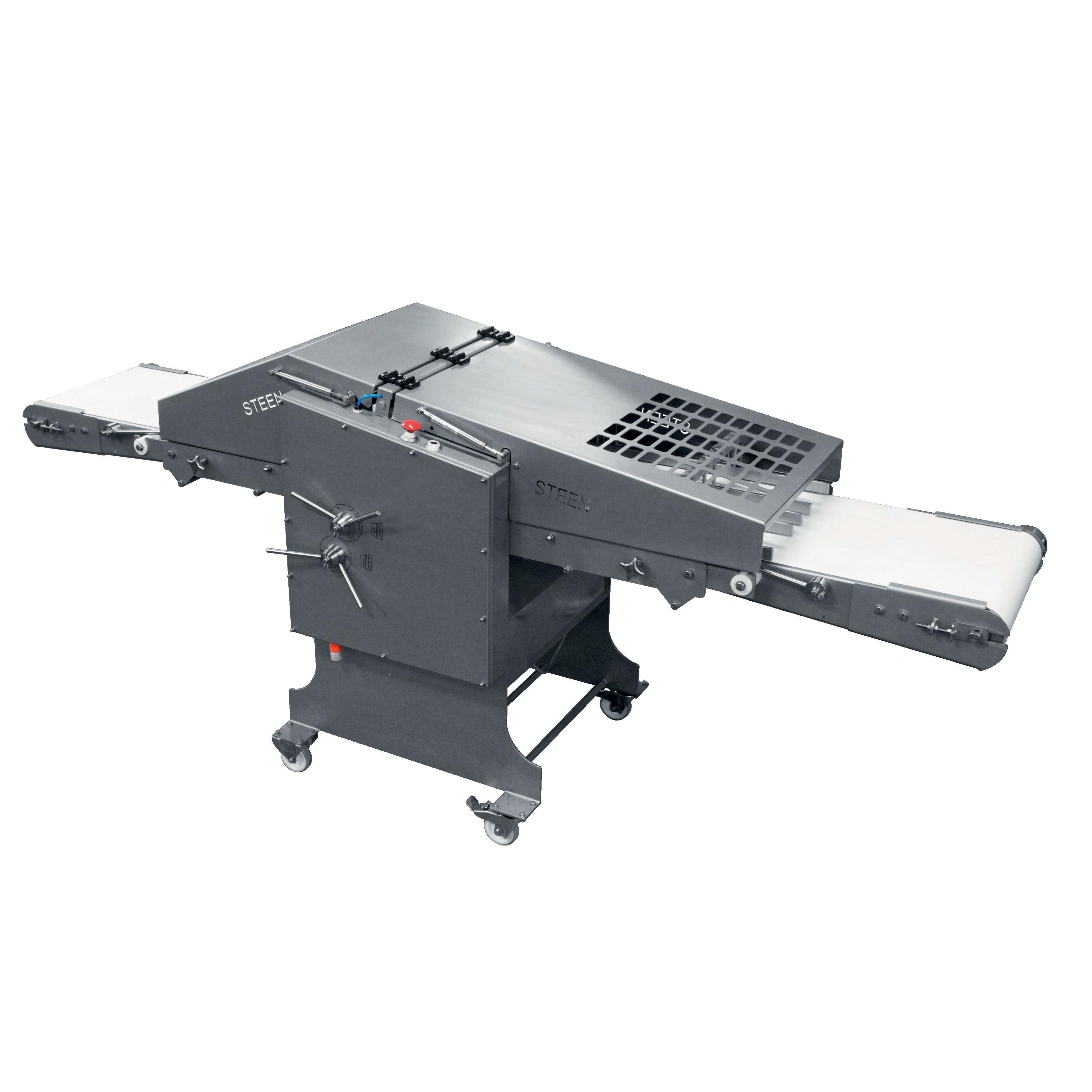
THE SEAFOOD MARKETPLACE FOR ASIA
SINGAPORE | 11-13 SEPTEMBER 2023
Seafood E xpo A sia
THE OFFICIAL MEDIA FOR SEAFOOD EXPO EVENTS

SeafoodSource is the most trusted and largest digital knowledge resource for the seafood industry. News | Expo Coverage | Educational Resources SeafoodSource.com




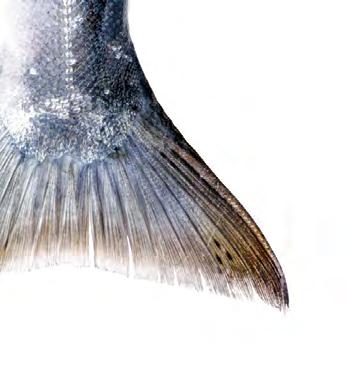



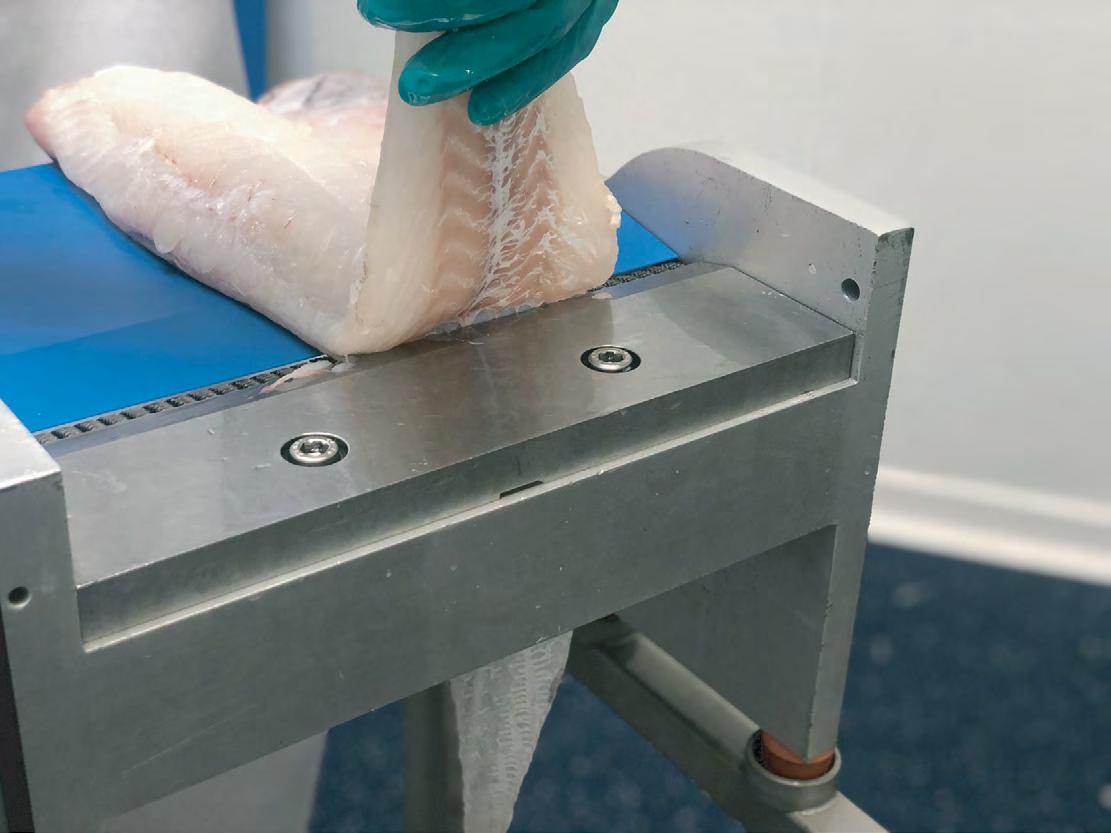








“Translating innovative technology into your fish processing solution.”
